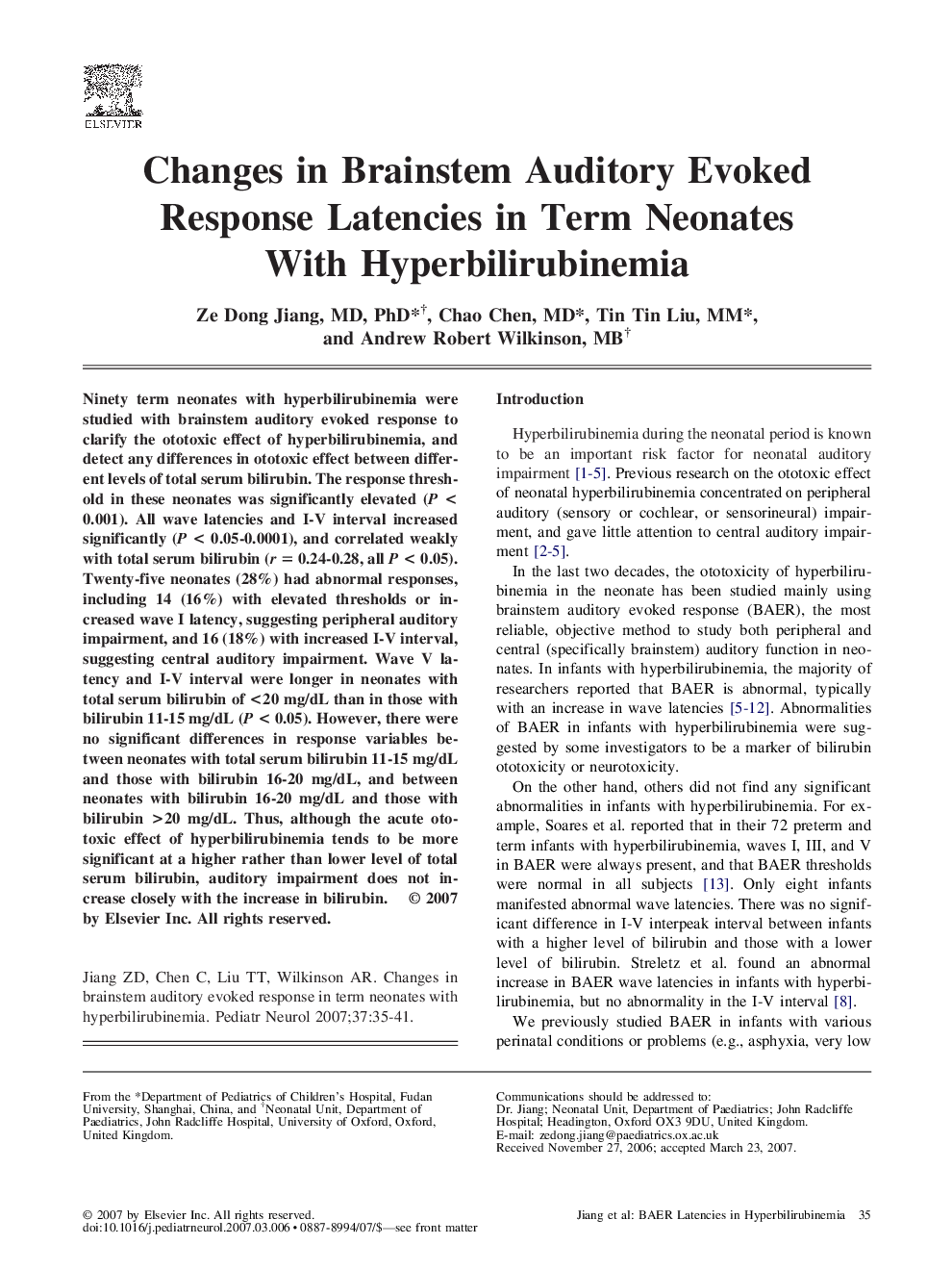| Article ID | Journal | Published Year | Pages | File Type |
|---|---|---|---|---|
| 3086918 | Pediatric Neurology | 2007 | 7 Pages |
Ninety term neonates with hyperbilirubinemia were studied with brainstem auditory evoked response to clarify the ototoxic effect of hyperbilirubinemia, and detect any differences in ototoxic effect between different levels of total serum bilirubin. The response threshold in these neonates was significantly elevated (P < 0.001). All wave latencies and I-V interval increased significantly (P < 0.05-0.0001), and correlated weakly with total serum bilirubin (r = 0.24-0.28, all P < 0.05). Twenty-five neonates (28%) had abnormal responses, including 14 (16%) with elevated thresholds or increased wave I latency, suggesting peripheral auditory impairment, and 16 (18%) with increased I-V interval, suggesting central auditory impairment. Wave V latency and I-V interval were longer in neonates with total serum bilirubin of <20 mg/dL than in those with bilirubin 11-15 mg/dL (P < 0.05). However, there were no significant differences in response variables between neonates with total serum bilirubin 11-15 mg/dL and those with bilirubin 16-20 mg/dL, and between neonates with bilirubin 16-20 mg/dL and those with bilirubin >20 mg/dL. Thus, although the acute ototoxic effect of hyperbilirubinemia tends to be more significant at a higher rather than lower level of total serum bilirubin, auditory impairment does not increase closely with the increase in bilirubin.
